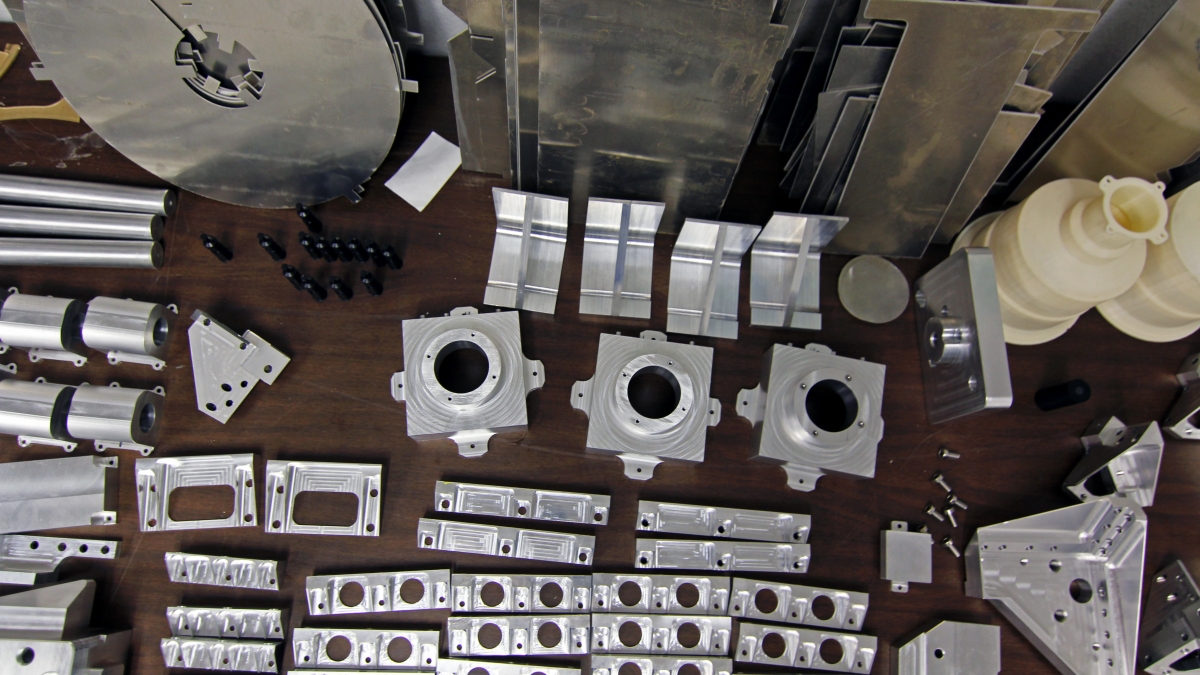ASU students play important role in launching satellites

For the traditional student, studying might involve hours stuck at a cramped desk surrounded by textbooks, notepads and study materials. For one group of students at the College of Technology and Innovation (CTI) at ASU, studying takes on a whole new meaning.
With more than 50 hours per week spent on fabricating aluminum joints and building models from manufacturing software, six CTI students are developing a model of a system for engineers at Orbital Sciences Corporation (Orbital) to test their assembly process.
Known for its curriculum that blends real-world problem-solving and academics in a culminating capstone called the iProject, CTI requires teams of students to work with industry partners to create innovative solutions to real problems faced by national and local businesses and organizations. Orbital, a developer and manufacturer of satellite and space launch systems, coordinated with CTI students to manufacture a system that will allow for testing of assembly procedures.
Orbital was contracted to develop and assemble more than 80 satellite systems to replace the current Iridium constellation of communication satellites launched in the 1990’s. In order to do this, Orbital asked CTI’s student team to create an exact replica of an Iridium NEXT satellite service module using materials less expensive than the actual service module. When the project is completed, Orbital will use the replica to assess how they plan on assembling this next generation of Iridium satellites.
Although actual Iridium satellites are built from costly materials like titanium, the team modified their satellite design by using less expensive materials like aluminum and other alloys.
“We also have to keep in mind weight differences since these materials are of different masses,” said Alex Helmes, a CTI student on the Orbital team.
The system, called the Iridium NEXT satellite vehicle, is a support structure designed to facilitate the easy manipulation of fragile satellites. These space-grade satellites must be moved around an air- and pressure-controlled laboratory to replicate delicate conditions in space.
The vehicle debuts at CTI’s Innovation Showcase on May 1, and the final system will be packaged and sent to Orbital this summer.
“What we designed is considered the life support for a satellite," Helms says. "It needs to be inertially accurate so we’re doing everything we can to make sure the vehicle gives proper support.”
Helms said the process began when he and students Jason Roberts, Daniel Bahena, Jay Balk, Anthony Carriedo and Chris Zappettini were selected to fulfill the project. Orbital gave the team design requirements from which they based their final design.
Parts of the satellite vehicle were manufactured using an industry-standard CNC vertical milling machine, which is just one of several milling machines available for student use at the Polytechnic campus.
Zappettini says that working with Orbital has been a positive experience and the team has learned firsthand about working in a corporation.
“We toured their facilities, and Orbital gave us an in-depth experience of what it is like to complete a project in the real world from beginning to end,” Zappettini said. “They expected a lot of us and really treated us like employees.”
As part of CTI's iProjects program, students implement theories learned in the classroom and they develop job-ready skills like project management, budgeting, teamwork and business etiquette that put them ahead of the curve when seeking employment after graduation.
The team was given budget guidelines and gave Orbital feedback on their progress. Helms said that at one point after getting design approval and manufacturing a portion of the vehicle, Orbital told the team that the design needed to be changed to accommodate recent modifications.
“This happens all the time in the real world, so we know Orbital is preparing us for what is to come,” Helms said.
Team members say they already have engineering jobs lined up after graduation or are currently working as engineers while in school.
Zappettini said the project has helped him with his efficiency skills.
“We have worked at a much quicker pace because of tight deadlines to finish the project, and this will definitely be a skill that I will bring with me to other jobs,” Zappettini said. “We wouldn’t have gotten this experience anywhere else. That’s for sure.”
When asked to share Orbital’s assessment of the program, Rick Kettner, senior director of engineering at Orbital, said the experience has been a positive collaborative effort between CTI and Orbital.
“Orbital is pleased to support CTI and the iProjects program, supporting science, technology, engineering and math education,” Kettner said.
Written by Sydney B. Donaldson